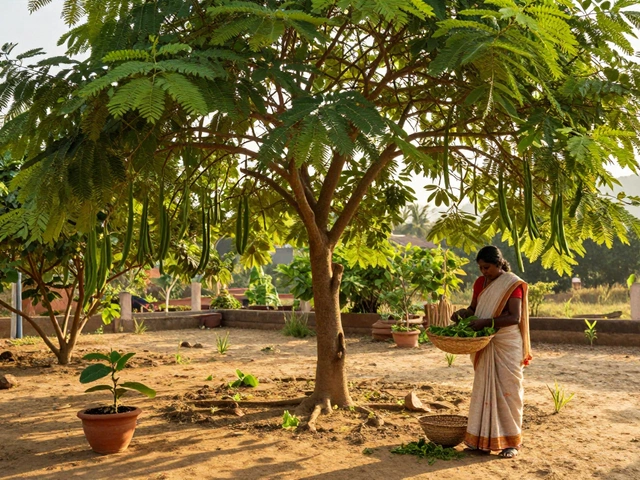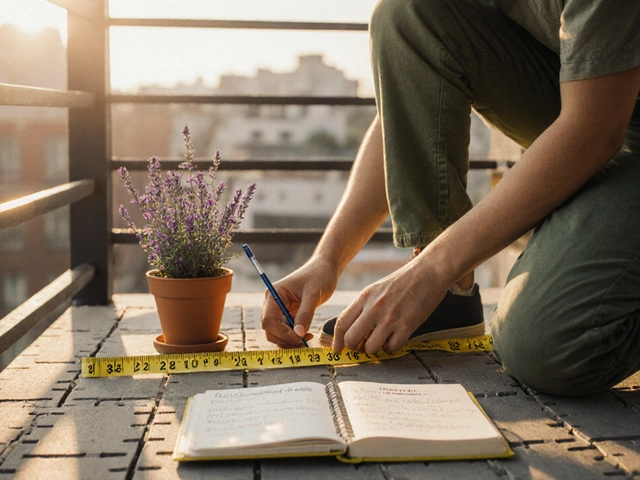How to Soften Firm Soil and Boost Your Garden
Ever tried to dig a hole and found the ground as hard as a rock? That’s firm soil fighting back. It blocks roots, holds water poorly, and makes planting a chore. The good news? You can loosen it up with cheap, everyday tricks. Below are the steps that actually work, no fancy equipment needed.
Add Organic Matter
Organic matter is the fastest way to break up compacted earth. Grab some well‑rotted compost, garden waste, or even kitchen scraps that have turned into humus. Spread a 2‑3 cm layer over the area and work it into the top 15 cm of soil using a spade or garden fork. The microbes in the compost eat the tough bits and create air pockets, turning hard soil into a softer, more breathable mix.
Use Sand and Small Gravel
If your garden soil is heavy clay, mixing in coarse sand helps improve drainage. Aim for a ratio of about 1 part sand to 3 parts soil. Too much sand can turn soil into a concrete‑like mix, so keep it balanced. Small pea‑gravel works the same way, giving the soil structure without overwhelming it.
Another cheap trick is to add gypsum. It doesn’t change soil pH but loosens clay particles, allowing water to flow more freely. Sprinkle a handful over a square meter, water it in, and repeat every few months during the growing season.
Practice Deep, Gentle Tilling
Heavy equipment can shred soil and create new compaction layers. Instead, use a garden fork or a broadfork to gently lift the soil. Insert the fork into the ground at a 45‑degree angle, pull back, and repeat across the plot. This method breaks up clumps while preserving soil life.
For larger areas, a light rototiller set to a shallow depth works, but stop before you reach the sub‑soil. Over‑tilling destroys the beneficial fungi that help plants absorb nutrients.
Keep Soil Covered
Leaving soil bare invites rain to pound it down, making it firmer. Mulch with straw, shredded leaves, or grass clippings right after you amend the soil. The mulch protects the surface, retains moisture, and slowly adds more organic matter as it breaks down.
Even a quick cover of cardboard or newspaper, followed by mulch, can keep weeds away and reduce soil compaction caused by foot traffic.
Water Wisely
Watering deeply once a week is better than a light daily sprinkle. Deep water forces roots to grow down, naturally loosening the soil over time. Avoid watering right after heavy machinery passes over the garden – the wet soil will compact more easily.
When using tap water, let it sit for a few hours if you have chlorine. This simple step protects soil microbes that help break down organic matter.
By mixing organic matter, adding sand or gypsum, working the soil gently, mulching, and watering correctly, you turn firm ground into a friendly home for roots. Try one or all of these tactics and watch your garden bounce back.
Tips to Firm Up Loose Garden Soil: Expert Techniques
Firming up garden soil can be essential for optimal plant growth and health. Loose soil often leads to poor root anchorage and water retention issues. This article explores various methods to improve soil structure, including organic amendments and practical gardening techniques. Readers will gain insights on adjusting soil composition to support their plants better and create a thriving garden environment.
About
Gardening
Latest Posts


How Much Rice Does 2 Cups Uncooked Make: A Deep Dive into Rice Cultivation
By Alden Thorne Mar 17, 2025

Discover the 365-Day Flowering Tree of India: Bougainvillea!
By Alden Thorne Apr 3, 2025

Which Plant in India Is the Most Nutritious for Vegetable Gardening?
By Alden Thorne Jan 30, 2026

